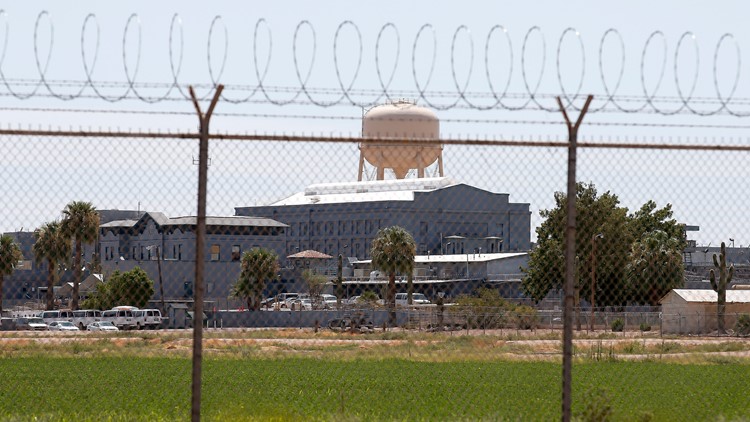A court-appointed expert in a lawsuit challenging the quality of health care in Arizona's prisons says understaffing, inadequate funding and privatization of health care services are significant barriers in improving inmate care.
The report released Friday comes as the state has been accused of persistently dragging its feet in following through on its promises made in a 2014 settlement to improve health care for inmates.
In the summer of 2018, then-Corrections Director Charles Ryan was found to be in civil contempt of court and the state was fined $1.4 million for noncompliance with elements of the settlement.
Earlier this year, a judge raised the possibility of throwing out the settlement and threatened a second contempt fine, which could be as high as $1.2 million, for its continued noncompliance.
Expert Marc Stern, who was hired to examine the method for determining whether the state is making the promised changes, said the gap between what is currently spent on health care operations in 10 state-run prisons and what it should be spent is at least $74 million annually.
Stern also said the state's decision to privatize health care services for inmates hasn't served it well and that "privatization of correctional health care costs the state more than self-operation."
He recommended that the Legislature's push for privatization of inmate care be rescinded or overridden by the judge so that the Department of Corrections can run those services again.
The Department of Corrections, which the report says has taken no position on the recommendation to end privatization, didn't immediately return a call seeking comment on the Stern's conclusions.
Stern, who has served as an expert in similar inmate care lawsuits across the country, was appointed late last year amid complaints about irregularities and errors in monitoring compliance with the settlement.
The agency is appealing Stern's appointment. In the past, a lawyer representing the state has said Stern appears to have a bias in favor of prisoners.
Corene Kendrick, an attorney representing the 34,000 inmates, said the report shows that a private company can't provide constitutionally sound health care, in part, because of the profit motive.
"An independent expert — he's not on the plaintiffs' side and he's not on the defendants' side — is saying many of the same things that the plaintiffs have been saying for years," Kendrick said.
The settlement arose out of a lawsuit that alleged that Arizona's 10 state-run prisons didn't meet the basic requirements for providing adequate medical and mental health care.
It said some prisoners complained that their cancer went undetected or that they were told to pray to be cured after begging for treatment.
The state denied allegations that it was providing inadequate care, and the lawsuit was settled without the state acknowledging any wrongdoing.



